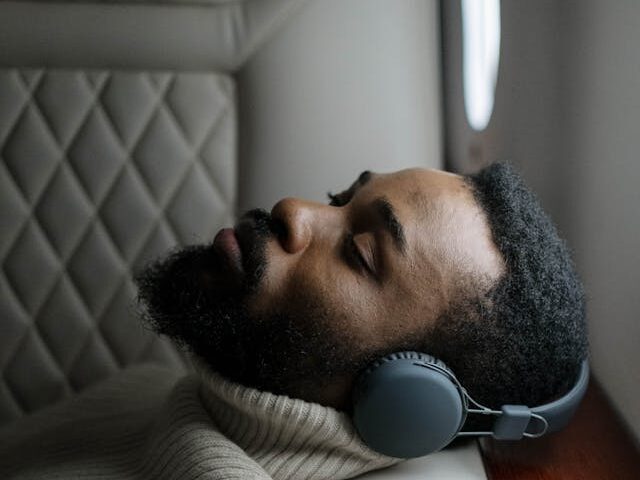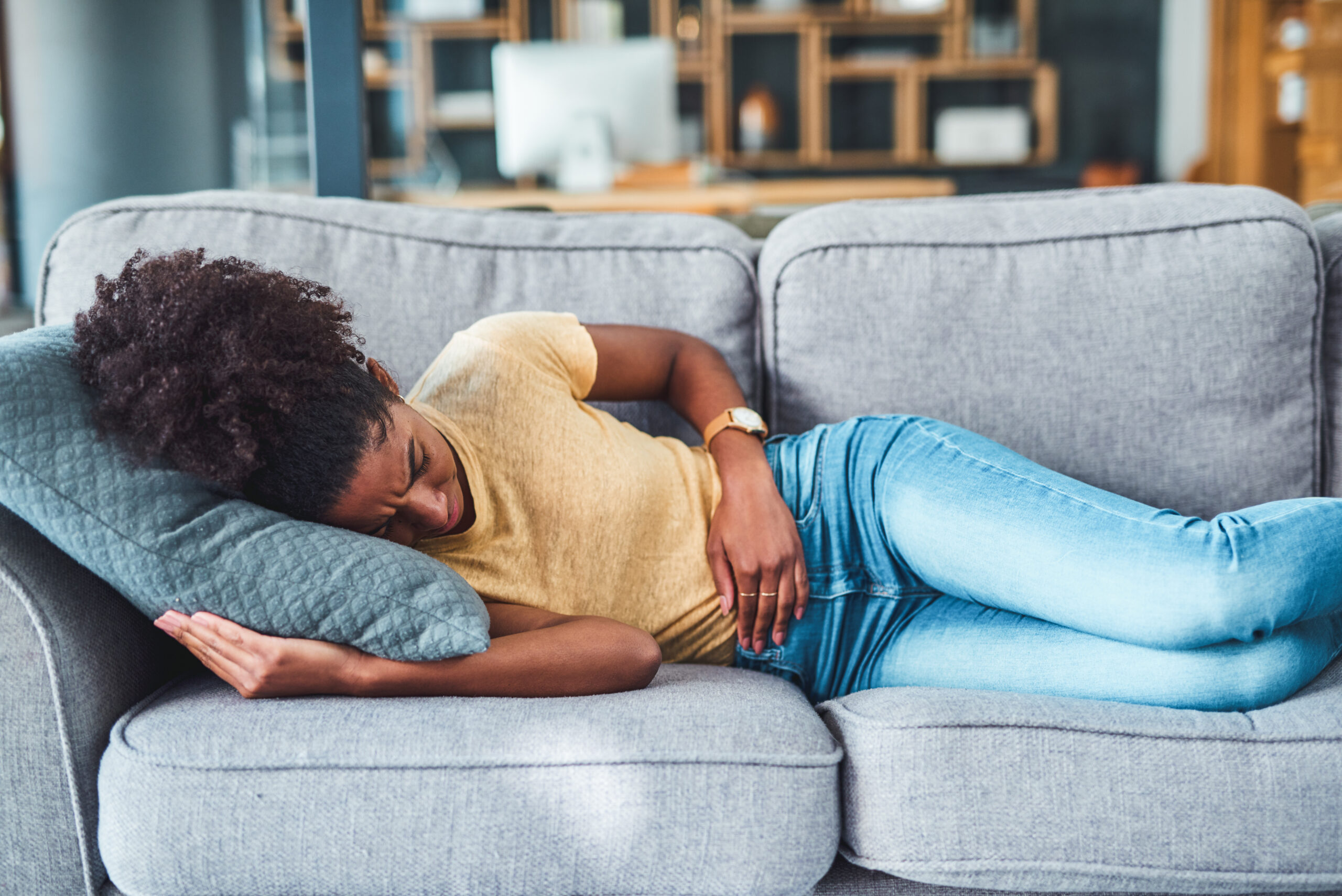Sixty-five percent of adults have an extra buddy in their beds: their phones. Unless Do Not Disturb timers are set, just about anything could rattle sleepers awake to find out the latest social media posts, news alerts or text messages from a night owl.
According to Pew Research, 30-to-49-year-olds are keeping their phones nearby more than 50-64-year-olds (70% versus 50%). And people ages 65 and up are much less likely to snuggle with their phones (34%). But 18-to-34-year-olds have their phone within arm’s reach a whopping 90% of the time.
Is all of this phone snuggling contributing to a lack of sleep? And what are the side effects of not getting a good night’s rest? Can lack of sleep cause nausea?

Who’s Sleeping Soundly and Who’s Not?
The Behavioral Risk Factor Surveillance System (BRFSS) recommends getting seven hours of sleep. The results? Participants who are 18 and older varied, with a notable amount of insufficient sleepers living in southern states such as Louisiana, Arkansas and Alabama, along with Midwestern states such as West Virginia, Ohio and Kentucky. Hawaii and Nevada residents also have poor sleep habits.
In the 2022 study, three groups that were most vulnerable to sleep deprivation:
- Men (37%)
- Adults ages 45 to 64 (39%)
- Native Hawaiian or Pacific Islanders (49%)
Black adults were not in the clear though. Their sleep deprivation numbers averaged 46%.
Can Lack Of Sleep Cause Nausea?
According to the U.S. Department of Health and Human Services “Healthy People 2030” study, our slumber future is getting worse nationwide. And less sleep results in a number of health issues, including cancer, death, diabetes, heart disease and obesity. Sleep deprivation also increases the risk of dementia and strokes.
But there’s one other less-talked about effect of sleep deprivation: nausea. According to the Sleep Doctor, some restless sleepers may experience diarrhea, gas and stomach pains. No sleep affects the immune system, primarily by overproducing proteins called pro-inflammatory cytokines. In turn, this causes inflammation.
(Note: This is not to be confused with “sleeping sickness,” commonly known as human African trypanosomiasis, or HAT. That disease is caused by the bite of a tsetse fly in sub-Saharan Africa.)
If sleep deprivation is not taken care of, restless sleepers may be at risk of changes in their digestive tracts and chronic disorders — colon cancer, Crohn’s disease, gastroesophageal reflux disease (GERD), inflammatory bowel disease (IBD), irritable bowel syndrome (IBS) and peptic ulcers.
Reducing Sleep Deprivation Before the Nausea Gets Worse
The good news is that changing sleeping habits does not require a major overhaul in your life. However, there are some disciplinary steps that should be taken to slowly improve those wide-eyed, restless sessions in bed.
First, avoid eating large meals, caffeine, alcohol and sugary drinks before bed. There are different levels to caffeine though. The average person may know to stay away from coffee at night. However, if you’re drinking a cup of black, green, oolong or white tea, there’s caffeine in that too unless the box says otherwise. But there is a reason there is no “bedtime coffee” versus “bedtime tea.”

Certain teas (chamomile, green, lavender, peppermint) help to decrease stress and anxiety, settle your stomach, and act as a relaxation aid. If you’re anxious, one of these beverage choices may be helpful in settling your nerves.
Second, remove, turn off or unplug all electronic devices such as televisions, computers and smartphones. If you know you’re not strong enough to ignore an alert or that glow even on Do Not Disturb mode, put your phone in another room altogether. Avoid working until the computer mouse falls out of your hand or the TV is watching you too.
Third, with your technology off, it’s time to make sure the rest of your room is quiet, dark and at a comfortable temperature. If you have one of those loud Wi-Fi printers that may occasionally clean your cartridges in the wee hours, check the instructions to turn it to quiet mode and turn that glow-in-the-dark light off. Quiet mode helps you avoid having to reset the Wi-Fi on your printer again the next morning.
Fourth, try to exercise regularly. Even if you’re not the type to lift weights at 6 a.m. and jog around the neighborhood, simple things like walking your dog a few extra blocks, Pilates or Tai Chi can help rev up and then relax your body. If traditional exercising is boring, try “fun” exercises like dancing. Social media channels such as Kukuwa Fitness have plenty of options for men and women ranging in age from small children to seniors.

Fifth, try to keep a consistent schedule. The same way you walk your dog or take your kids to school at a specific time should be the same way you prioritize your sleep schedule. By creating your own sleep training methods, your body will start to let you know when it’s tired long before you try to tire yourself out.
With these five steps mentioned above, the nausea from sleep deprivation should decrease. If not, talk with your doctor about additional resolutions to improve sleeping habits.
